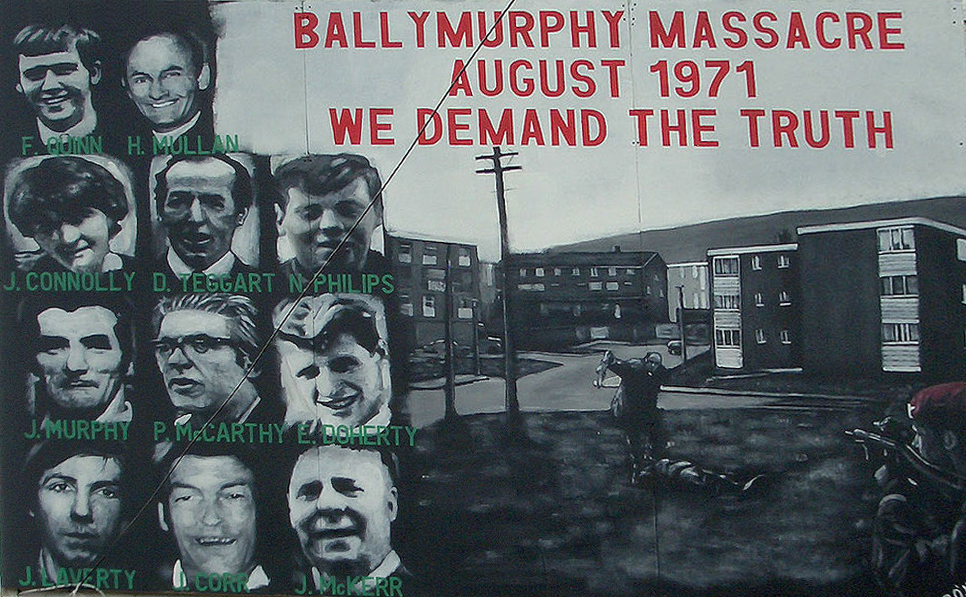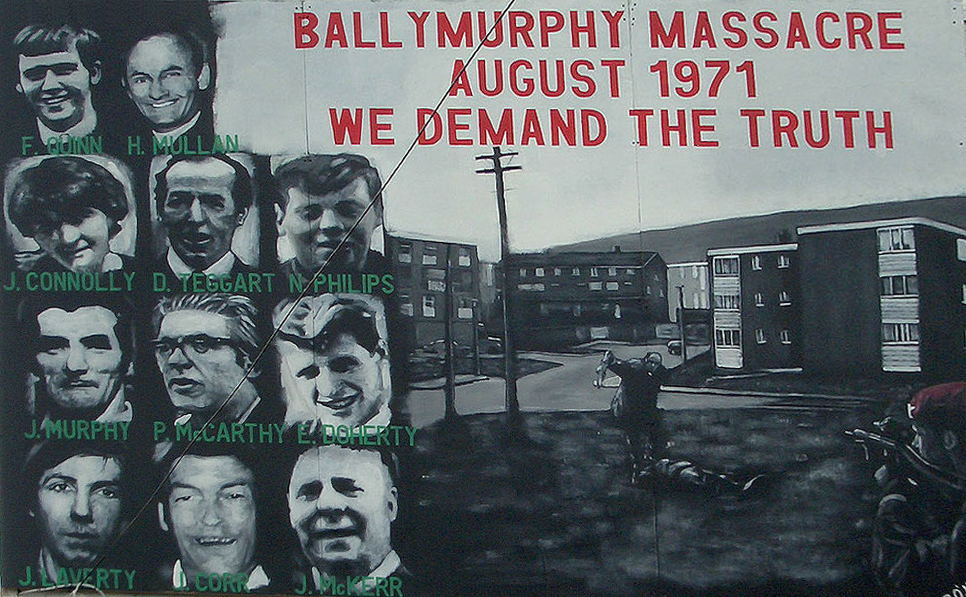
Ten people who were shot and killed in Belfast, Northern Ireland, in 1971 were innocent of any wrongdoing on the day in question, a coroner found. Justice Siobhan Keegan delivered the results of the investigation into the Ballymurphy massacre at the International Convention Centre in Belfast on Tuesday.
Between August 9 and 11, 1971, 10 Catholic civilians were killed during British military operations in the West Belfast housing estate of Ballymurphy.
The massacre is the subject of the Pulitzer Center-supported documentary The Ballymurphy Precedent. Filmmaker Callum Macrae investigates the killings, arguing they are central to understanding what happened over the following three decades in Northern Ireland. Most of the Ballymurphy killings were carried out by the same regiment of British soldiers that, five months later, shot dead another 13 innocent people on what became known as Bloody Sunday.
“The coroner’s findings are a fantastic vindication of what the families—and our film—said,” Macrae said shortly after the verdict was announced. “They are rightly hugely pleased—and emotional.”
As well as being a forensic investigation of the killings, the film details the military and political strategy that led to them, and the violence that followed. The film calls into question the conventional history of The Troubles, and demands a re-examination of Britain's role in instigating the 30-year conflict.
After a 1972 investigation resulted in open verdicts, new inquests into the massacre began in 2018 and concluded in 2020, making them the longest-running inquests in Northern Irish history.
Prime Minister Boris Johnson wrote a letter of apology to the families of the victims on Thursday, a gesture which has been called insufficient amid calls for a public apology and more government accountability.
On the same day, the U.K. announced plans to introduce legislation that addresses the legacy of The Troubles in Northern Ireland. The announcement came during the Queen’s Speech, an address that outlines the British government’s plans and priorities for the coming parliamentary year.
Previous reporting predicted an announcement of legislation that would enact a statute of limitations banning prosecutions prior to the 1998 Good Friday agreement, except for cases involving war crimes, genocide, or torture. But in Tuesday's speech there was no mention of amnesty or what specifically the future legislation will implement.
A government document accompanying the speech reads, “It is clear that the current system for dealing with the legacy of the past is not working well for anybody, with criminal investigations increasingly unlikely to deliver successful criminal justice outcomes, and failing to obtain answers for a majority of victims and families.”
The Ballymurphy Precedent is available for streaming here.






